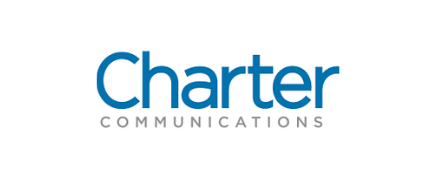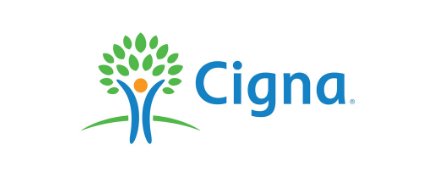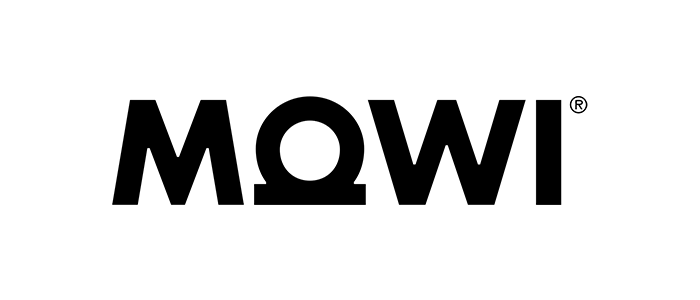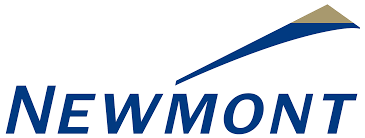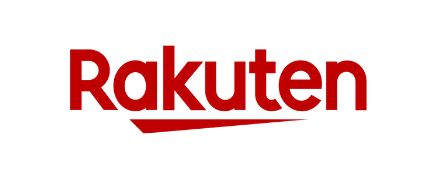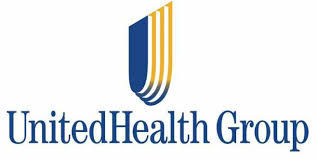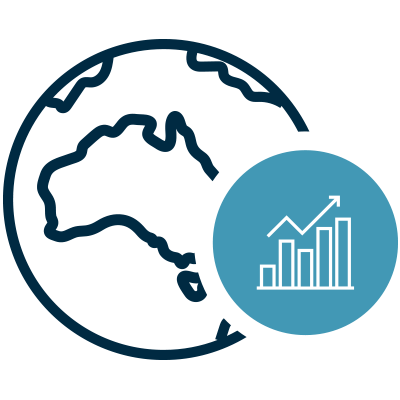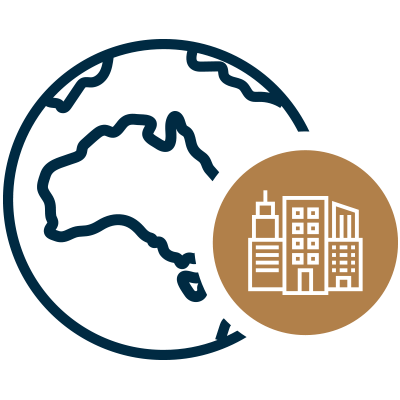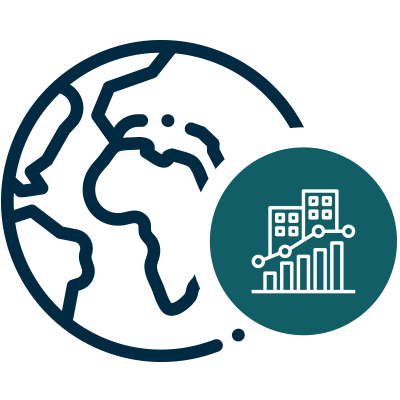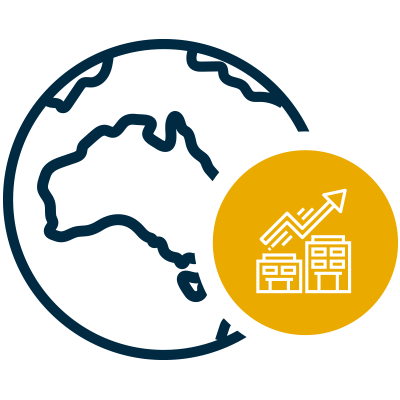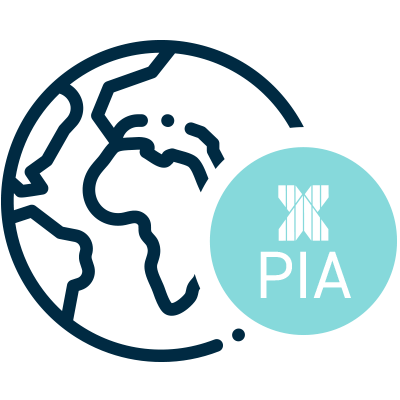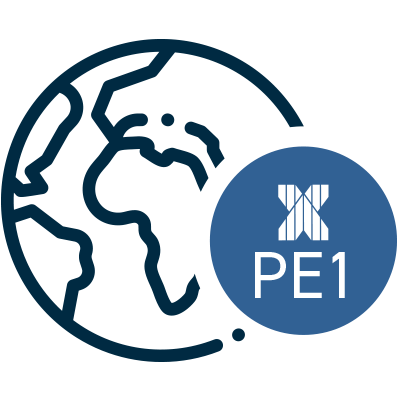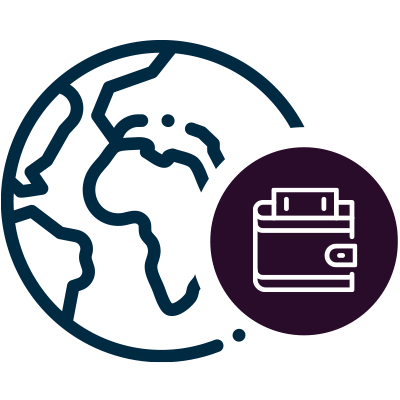Achieving true diversification in the face of market uncertainty
PORTFOLIO
Top Holdings (alphabetically)
Sector Breakdown
Capitalisation Breakdown
Region Breakdown
Segment
PERFORMANCE
PERFORMANCE SINCE STRATEGY INCEPTION
NET PERFORMANCE FOR PERIODS ENDING 29 Feb 20201
PERFORMANCE SINCE STRATEGY INCEPTION
NET PERFORMANCE SINCE INCEPTION2
COMMENTARY
At the start of the year, no one would have predicted that a virus would be the potential catalyst to pop the bull market, but that is exactly where we are today. What this demonstrates is that the world is inherently unpredictable and it’s this unpredictability that we, as fund managers, spend a lot of time thinking about and preparing for.
There are several tools that you can use to manage unpredictability, two of which are diversification and holding positions in stocks that benefit from market turbulence, such as derivatives exchanges.
Diversification is difficult because you don’t want to be so diversified that you resemble an ETF (Exchange-Traded Fund), but you do need sufficient diversification so that no one factor will make you or break you. We manage this diversification conundrum by holding 30-40 stocks across a variety of industries and geographies.
Though even that is not enough, because you can have two stocks in different geographies and industries that are still highly correlated. American Express and Ryanair are a prime example of this relationship. One is an American payments business and the other is a European Airline, but they have a high correlation due to their exposure to global travel. Thus, when diversifying the portfolio, we must consider the underlying drivers of our businesses.
To give you a sense of the portfolio’s current diversification, we currently hold positions in businesses that directly benefit from market volatility, such as derivative exchanges and market makers. These businesses did very well during the February spike in volatility.
We also hold investments in health insurers such as UnitedHealth and Cigna. We identified these companies because they’ve become attractively priced since Bernie Sanders and Elizabeth Warren threatened to introduce publicly-funded health insurance for the whole US, should they win the upcoming election.
We think that this outcome is unlikely. Firstly, it doesn’t make economic sense because it would cost the US approximately US$30 trillion dollars to implement. Even thinking more practically, for this to happen, it would depend on several events coming to fruition. Firstly, it would require Sanders or Warren to win the Democratic nomination. They would then have to win the US election. They would then have to get a bill passed through the Lower House. They would then have to get 60% of the Upper House to vote for it. And they would then have to defend the bill through a variety of inevitable legal cases. To be blunt, we think these are very low-probability events.
We also hold investments in the Chinese internet behemoths, Alibaba and Tencent, which have dominant market positions in an economy that continues to have a very favourable long-term outlook. Considering that the household final consumption expenditure per capita in China is roughly half of places like Malaysia, Argentina and Turkey, there’s still a very long runway for growth in that market.
We also have an investment in Bharti Infratel, an Indian cellular tower business that is both debt-free and benefits from the inevitable increased investment into cellular infrastructure in India.
We even have investments in a variety of healthcare stocks that will benefit from the ageing and fattening population. Some examples are Medtronic, the world’s largest medical device business, and Novo Nordisk, a Danish company that is the leading producer of insulin for diabetics. We also have an investment in Merck, an exciting German pharmaceutical and life science company.
We think these examples provide a very strong snapshot of the portfolio’s diversification, which is one of the reasons we think our portfolio is built to last. So when people ask us how we are responding to the coronavirus, there aren’t any drastic moves that we have to make.
We’re very comfortable with the portfolio as it stands today.
The proof is in the pudding because, during the February sell-off, our fund outperformed the benchmark by more than 2%, validating our thesis and demonstrating the defensive characteristics that we are seeking.
Our portfolio is not just defensive, we also have exciting investments in companies that will benefit from the US health insurance industry not being nationalized, long-term growth in consumer expenditure in China, growth in cellular communication in India and the ageing and fattening global population.
So the key message is that we believe diversification is an important tool to manage the world’s inherent unpredictability. As we look at our fund, we are pleased with the level of diversification and the results it is producing and therefore we don’t see a need to make any drastic changes to the fund in the face of current market volatility.
PROFILE
STATISTICAL DATA
PORTFOLIO SUMMARY
FEATURES
- APIR CODE PCL0026AU
- REDEMPTION PRICEA$ 1.3912
-
FEES *
Management Fee: 0.974%
Performance Fee: Nil - Minimum initial investment $25,000
- FUM AT MONTH END A$ 41.46m
- STRATEGY INCEPTION DATE 1 July 2015
- BenchmarkMSCI All Country World Total Return Index in AUD
Fund Managers
Description
The Pengana International Fund invests in 30-50 companies across developed and developing markets, large and small companies. The Fund predominantly invests in franchises that deliver stable yet growing free cash flow throughout cycles (which we classify as ‘Core’ holdings) whilst also taking positions in more cyclical companies (‘Cyclical’) and those whose valuation has been materially misconstrued by the market (‘Opportunistic’).
EXPLORE OUR FUNDS
1. Net performance figures are shown after all fees and expenses and assume reinvestment of distributions. Past performance is not a reliable indicator of future performance, the value of investments can go up and down.
2. Inception 1st July 2015.
3. Annualised standard deviation since inception.
4. Relative to MSCI All Country World Total Return Index in AUD
* For further information regarding fees please see the PDS available on our website.


